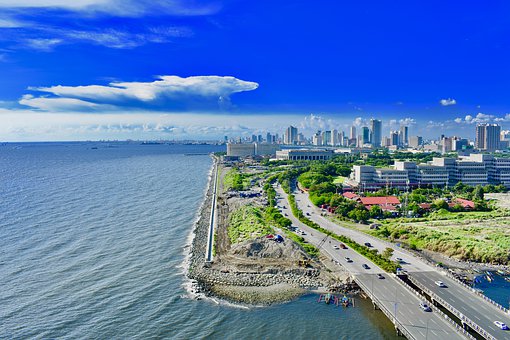On 7 September 2023, the Philippine Economic Zone Authority (PEZA) issued Memorandum Circular No. 2023-045 otherwise known as Clarifications on the Documentary requirements in securing PEZA Visa (hereinafter, “Memorandum Circular”). The Memorandum Circular identified three documentary requirements for clarification, namely: 1) Affidavit of Understudy Training Program (UTP) and Skills Development Program (SDP), 2) Request for Exemption from the Order to Leave (OTL), and 3) Letter of Explanation required for PEZA visa (PV) renewal applications filed less than 30 days prior to visa expiry.
Before the issuance of this Memorandum Circular, among the requirements for the PV application was the submission to PEZA of the Understudy with Undertaking for technical and supervisory positions which included an Affidavit of UTP. As with any issuance, there arises a question of the appropriateness of a regulation, without necessarily causing unwarranted inconvenience, points which again come to fore given this legal development.
By way of definition, the National Economic and Development Authority (NEDA) in its Implementing Rules and Regulations (IRR) of Republic Act No. 11647 (an Act Promoting Foreign Investments, amending thereby RA No. 7042, otherwise known as the Foreign Investment Act of 1991, as amended), explains the UTP as “a training plan designed to transfer technology or skills by designating at least two (2) understudies per foreign national employed.” The employer selects two next-in-rank Filipino regular employees within the same enterprise, to be trained by the foreign national, who will transfer the technology or skills to the Filipino employees. Once the transfer is successful, the goal is for the Filipino employee to succeed the foreign national. Notably, the IRR issued by NEDA also provides that it is the Department of Labor and Employment (DOLE) which is tasked to monitor and regulate the UTP.
In the said Memorandum Circular, the PEZA also does away with the requirement to submit a letter to the PEZA Director General for PV renewal applications filed less than 30 days prior to visa expiry. Prior to this issuance, PEZA already amended its initial rules on the filing of PV renewal application less than 30 days before the expiry of the visa. The initial rule was that only PV renewal applications filed at least 30 days prior to the expiration of the visa were accepted. PV renewals which were filed less than 30 days prior to visa expiry were not accepted and the foreign nationals were directed to first downgrade their visas before they could apply anew for the conversion of their downgraded 9(a)/temporary visitor visas to PVs.This rule was amended through Joint PEZA-BI Memorandum Circular (JMC) No. 2022-001, otherwise known as the Amended Guidelines Governing the Documentary Requirements and Procedures for the Application, Evaluation and Processing of the PEZA Visa. The Joint Memorandum provided that PV renewal applications filed less than 30 days before their respective expiration dates may still be accepted by the PEZA, provided that a letter explaining the justifiable causes for the belated filing is attached to the appliation. In the Memorandum Circular, PEZA now categorically allows the filing of PV renewal applications within the 30 days prior to the expiry of the valid PV, as it eliminated the requirement to submit the letter of explanation for the belated filing to the PEZA Director General.
Finally, the PEZA now allows the submission of a request for exemption from the OTL for foreign nationals who are required to downgrade their PVs should there be a change in position, title or job description while working for the same company. Prior to this Memorandum Circular, the Order of Downgrading for these foreign nationals came with a mandatory Order to Leave the country before they can apply for the conversion to a PV for the new position within the original company. This resulted to logistical and financial difficulties on the foreign nationals as they were constrained to leave the country and come back, despite their intention to remain in the Philippines to work. It also proved to be counter-productive as foreign employees who are promoted, changed positions, roles or functions would have to stop working temporarily in order to either comply with the OTL or await the resolution of their Motion for Reconsideration requesting for its waiver. The arising scenarios are obviously less than ideal, not to mention assuredly inconvenient, for any impacted foreign national.
Now, the foreign national whose PV is to be downgraded by reason of change in employment status due to change in position, title or job description while working for the same company may now be exempt from an OTL through the submission of a request letter for exemption from the OTL to be submitted to PEZA and thereafter endorsed to the Bureau of Immigration (BI). The downgrading application must be accompanied by the original and duly accomplished Contract of Employment (or Job Offer) of the foreign national and a Notarized Undertaking to immediately apply for a PV. This is a welcome development to simplify the immigration processes for efficiency and convenience. It is with hope that this leads to the OTL also being waived for foreign nationals who downgrade their PVs to work for a different company in the Philippines. Although the reason for the OTL is simply a change of employer or visa sponsor, the issuance of an OTL to a individual in a foreign country leaves a negative impression. The issuance of the OTL also runs counter to the promotion of the country’s competitiveness and attractiveness to foreign investors, hence, worth revisiting.
In summary, PEZA’s efforts are commendable for refining and improving the rules on the issuance of the PV. However, as with each new regulation, there is always the balancing between warranted hurdles to convenience versus advocating for measures that serve public interest and adhere to the ease of doing business.
This article is for informational and educational purposes only. It is not offered and does not constitute legal advice or legal opinion.

For further information, please contact:
Christianna Manami Y. Salud, ACCRALAW
cysalud@accralaw.com





